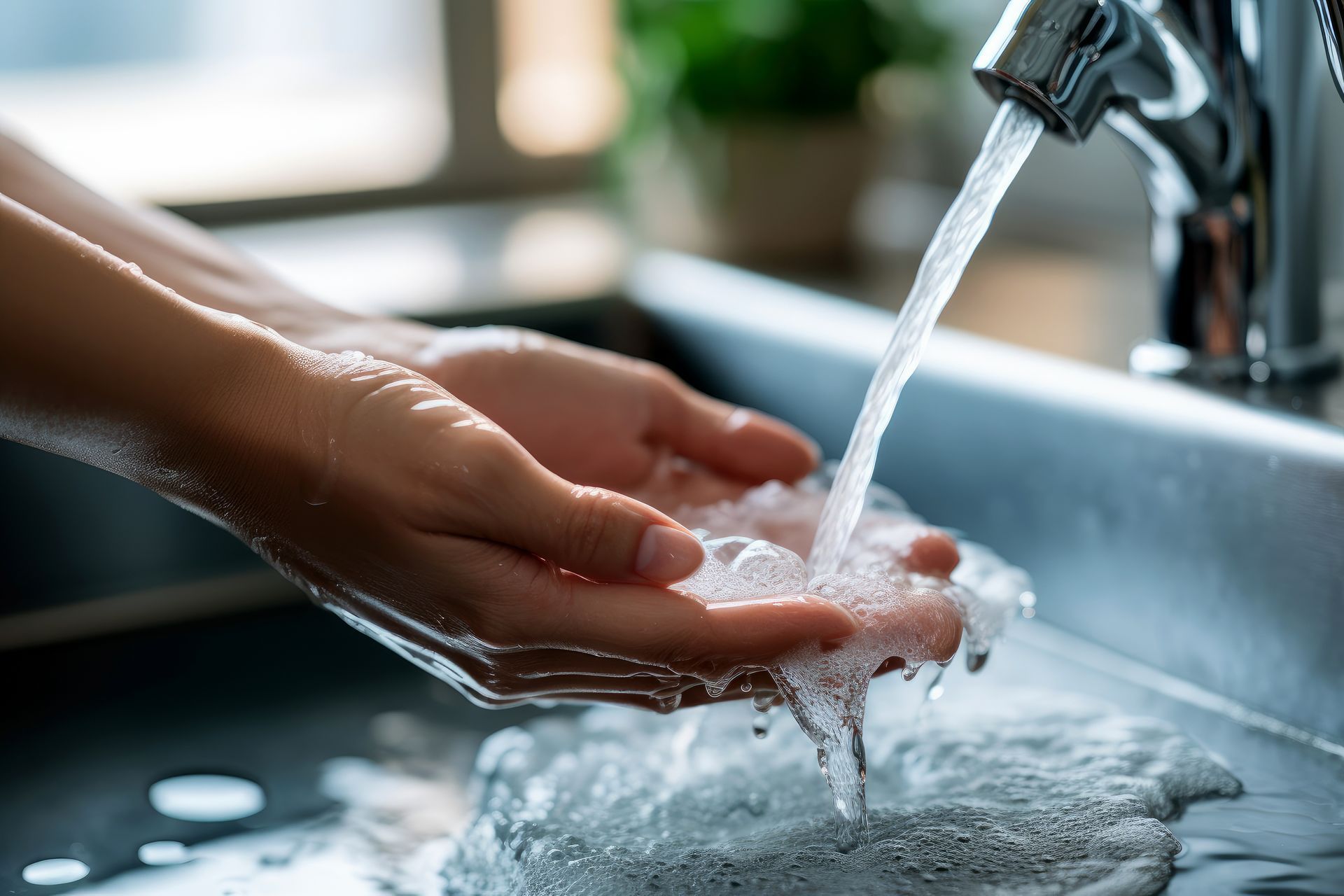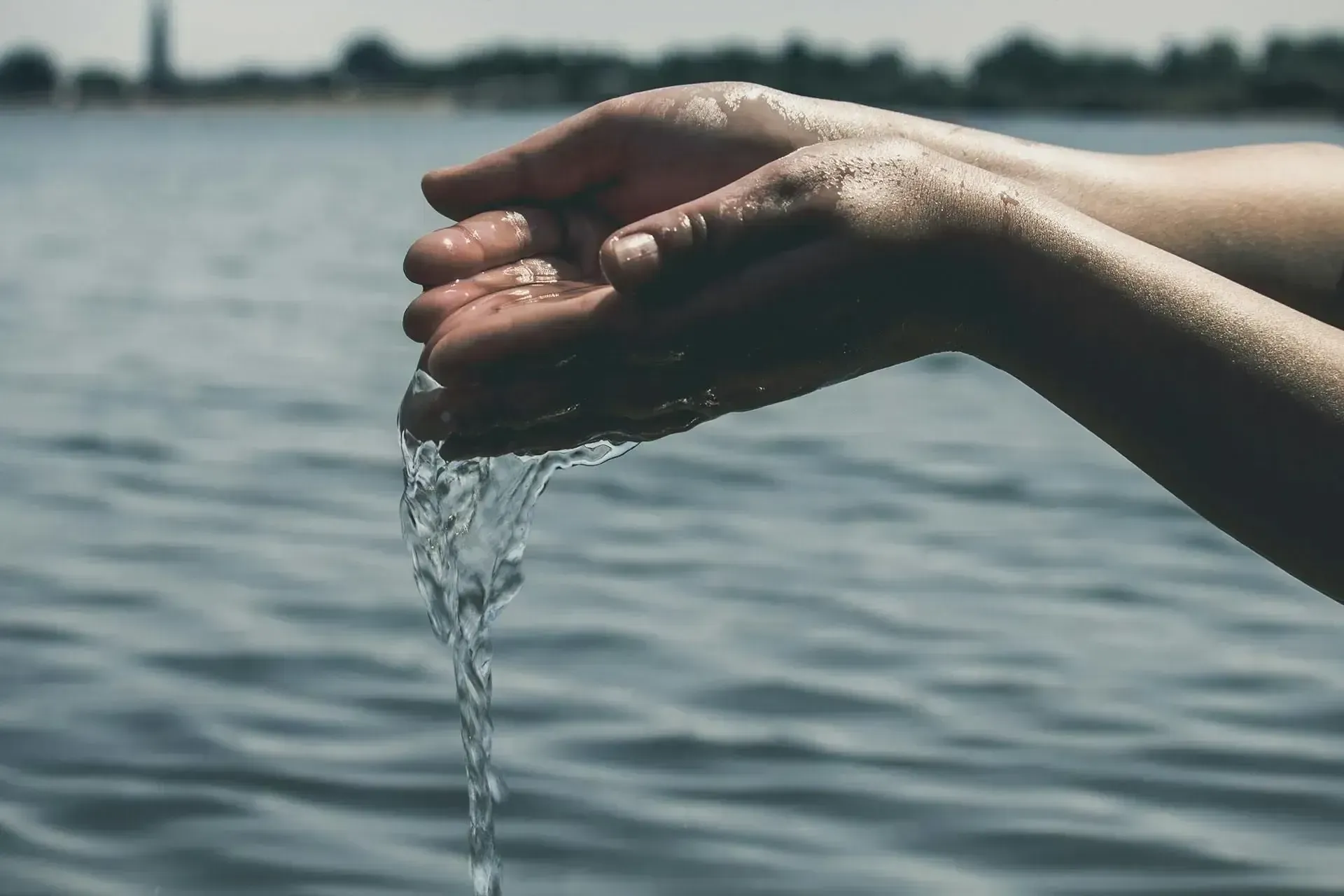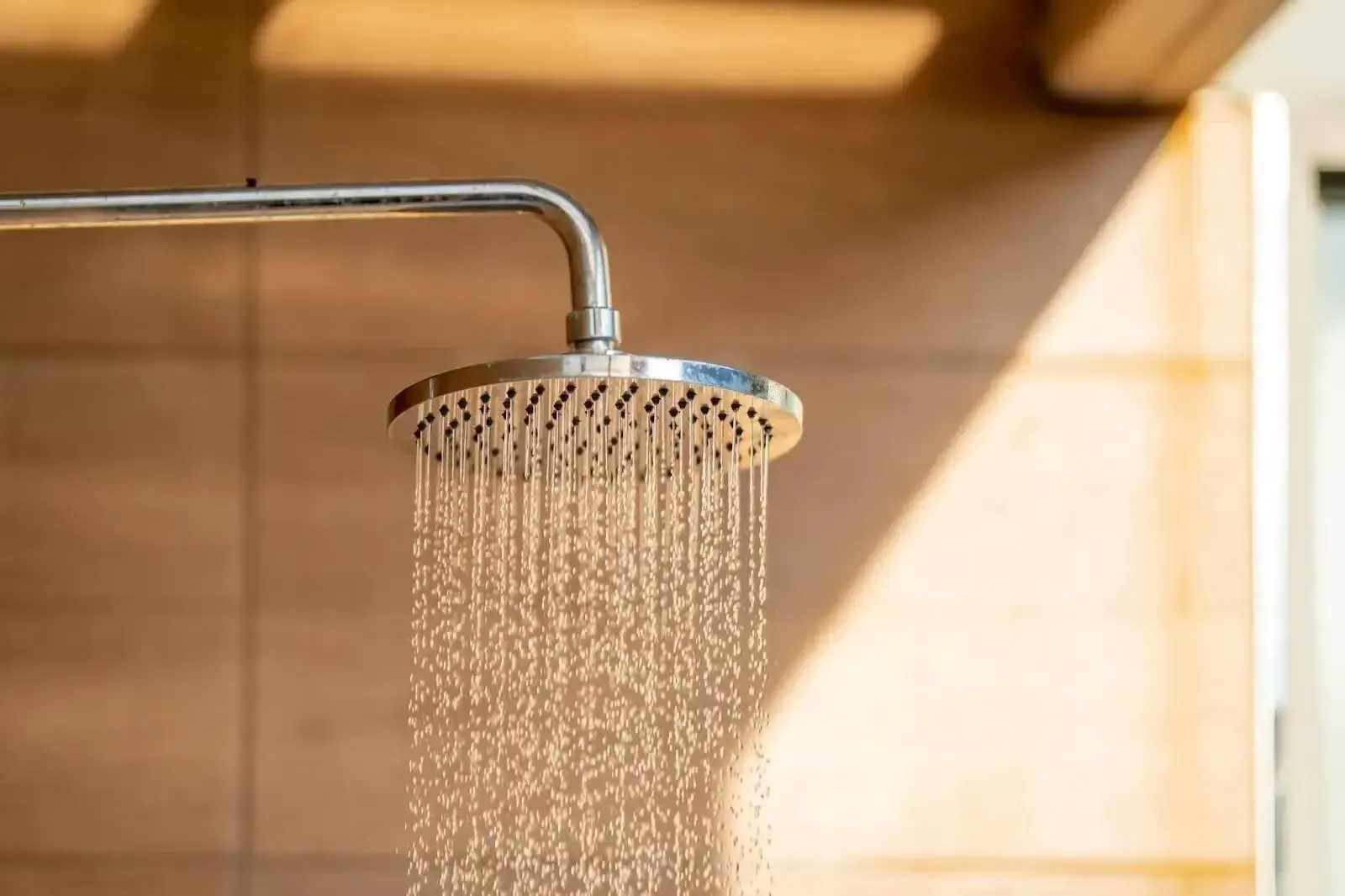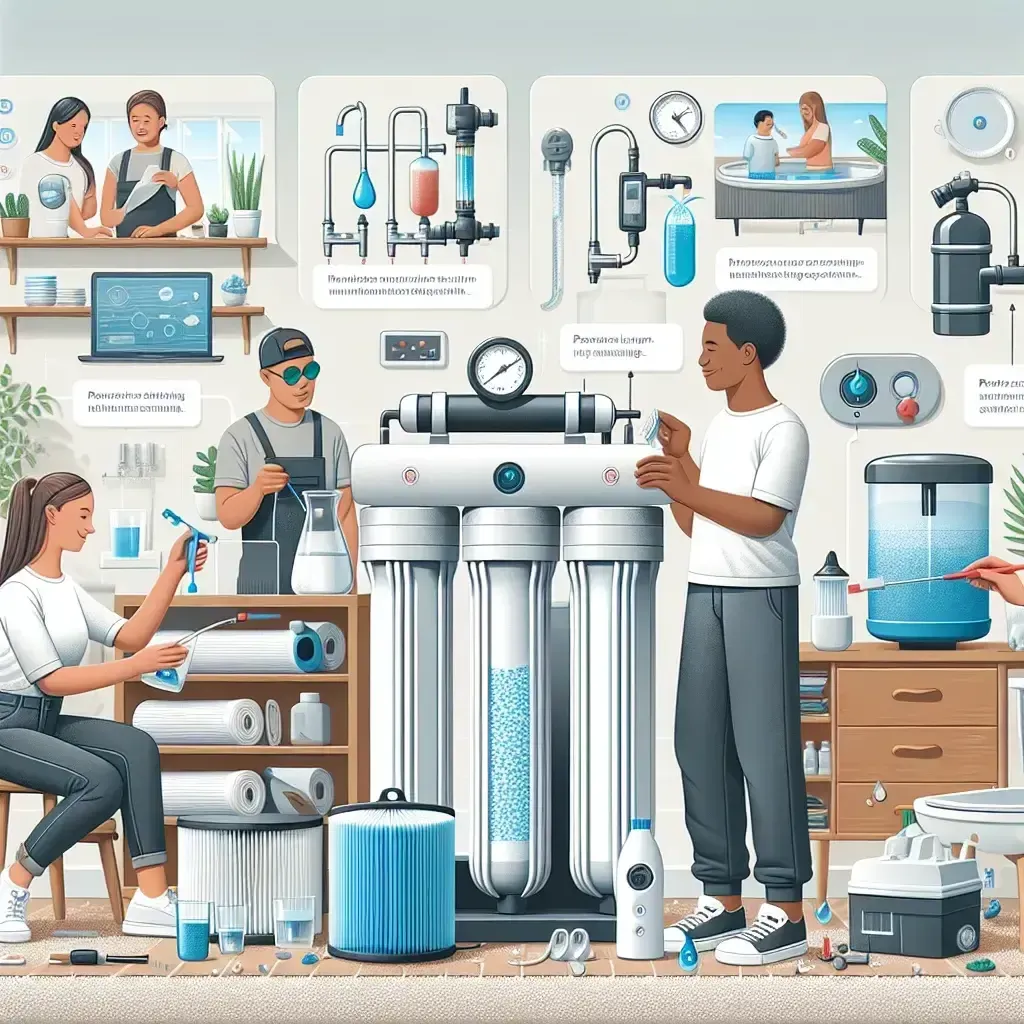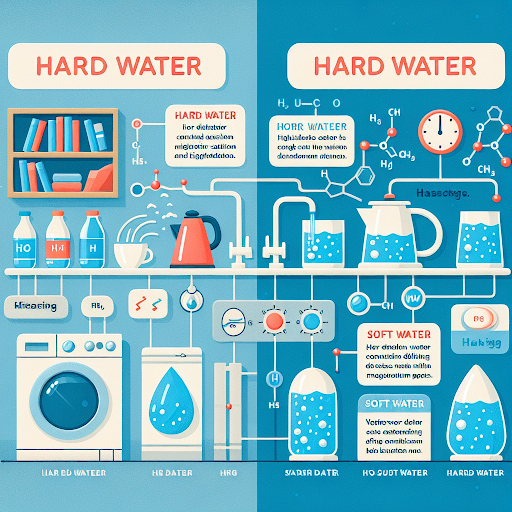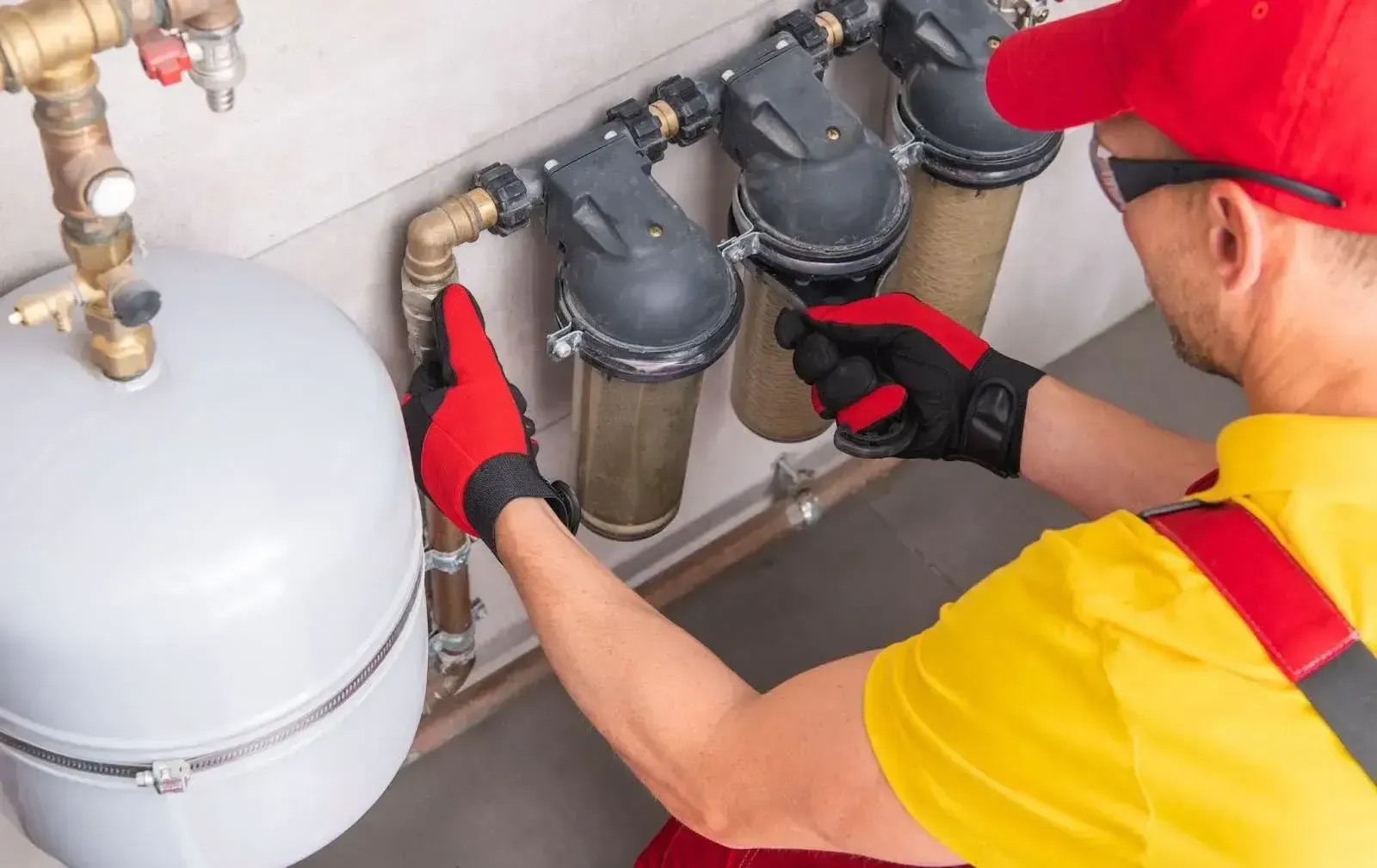A Guide to Water Conditioner Installation in Wasatch County: Benefits, Types, and Cost
Water conditioners are an important investment for ensuring clean and safe drinking water for you and your family. They can remove impurities and contaminants from your water, including heavy metals and PFOS chemicals. Different types of water conditioners include sink water filters, whole house filtration systems, and reverse osmosis systems. To choose the right water conditioner for your home, consider your specific water needs, convenience, and the expertise of the water conditioning company. The cost of a water conditioner can vary depending on the type, size, and features of the system. Regular maintenance, including cleaning or replacing filters and testing water quality, is important for optimal performance. Other considerations include the filtration method used by the water conditioner and the ability of the company to provide in-house testing and tailored recommendations.
Table of Contents
- What is a water conditioner?
- What are the benefits of installing a water conditioner?
- How does a water conditioner work?
- What are the different types of water conditioners?
- How do I choose the right water conditioner for my home?
- How much does a water conditioner cost?
- How do I maintain my water conditioner?
- Are there any other considerations I should keep in mind?
What is a water conditioner?
A water conditioner is a crucial element in maintaining the quality and purity of your household water. It is designed to treat and improve the quality of water from various sources, including both city and well water. By utilizing different technologies and advanced filtration systems, water conditioners are able to effectively remove impurities and contaminants, ensuring that your water is safe and clean for consumption. Whether you are faced with hard water, high levels of sediment, or specific contaminants such as PFOS, a water conditioner can provide the necessary solutions for your specific water needs.
One of the key processes used in water conditioners is the reverse osmosis process. This technology involves the application of pressure to force water through a semipermeable membrane, effectively removing a wide range of impurities and contaminants. This process is highly effective in improving the taste, odor, and overall quality of water. By investing in the best water filter system with reverse osmosis capabilities, you can experience a noticeable difference in the taste and clarity of your water.
When choosing a water conditioner and filtration system, it is important to consider the expertise and reputation of the company providing the installation. A reputable water conditioning company will have a lot of knowledge, experience, and backing around what they do and who they are. They will have a deep understanding of water quality and treatment solutions, ensuring that you receive the most effective system for your specific needs. Additionally, they will have expertise in dealing with specific water contaminants, such as PFAS, providing tailored solutions for effective PFAS removal.
What are the benefits of installing a water conditioner?
Installing a water conditioner in your home comes with a myriad of benefits. Firstly, by utilizing the current, up-to-date technology in water conditioning systems, you can ensure that your household water is treated and purified to the highest standard. This means that you will no longer need to rely on bottled water, as your tap water will be clean and safe for consumption. Not only does this save you money in the long run, but it also reduces unnecessary plastic waste. Additionally, a water conditioner allows you to use purified water for your coffee machine, resulting in a better tasting cup of joe every morning. Say goodbye to the unpleasant taste and odor of impurities in your water, and indulge in the pure, crisp flavor of coffee made with purified water.
Another advantage of installing a water conditioner is the wide range of testing options available for your home prior to its installation. A reputable water conditioning company will be able to assess your specific water needs and offer tailored testing solutions. This includes testing for specific contaminants, such as PFOS chemicals. You may be wondering, “What are PFOS chemicals?” PFOS, or perfluorooctanesulfonic acid, is a man-made chemical that has been linked to various health issues. By having your water tested for such contaminants, you can ensure the safety and purity of your household water. With a water conditioner, you have the peace of mind knowing that your water has been thoroughly tested and treated, providing a healthier environment for you and your family.
Once the testing is complete, you can have a water conditioning solution that is equipped to remove whatever contaminants are present. By completing testing first, you can ensure that the system is designed to work in your specific situation.
The benefits of installing a water conditioner in your home are numerous. From the use of advanced filtration technology to the elimination of the need for bottled water, a water conditioner provides clean and safe water for consumption. Additionally, the wide range of testing options offered by reputable water conditioning companies ensures that your water is free from harmful contaminants like PFOS chemicals. By investing in a water conditioner for your household, you can enjoy the taste and clarity of purified water while prioritizing the health and well-being of your family.
How does a water conditioner work?
When it comes to how a water conditioner works, it’s important to understand that everything is customized per the home. Different water conditioners utilize various technologies and filtration systems to effectively remove impurities and contaminants. For instance, one common method is reverse osmosis, which involves exerting pressure to force water through a semipermeable membrane, effectively eliminating a wide range of impurities and improving the taste and odor of the water. Additionally, water conditioners are equipped to handle specific issues like iron heavy metal removal and PFAS contamination, ensuring that your water is free from harmful substances. By investing in a water conditioner, you can have the peace of mind knowing that your household water is being treated and purified to the highest standard, resulting in good clean drinking water for you and your family.
One of the advantages of a water conditioner is the ability to use filtered water for your ice cube maker. By having a water conditioner installed, you can be confident that the water used to make your ice cubes is pure and free from any impurities or contaminants. This means that you no longer have to worry about the quality of your ice cubes affecting the taste of your beverages or contaminating them with harmful substances. With a water conditioner, you can enjoy crystal-clear ice cubes that enhance the overall quality of your drinks, ensuring a refreshing experience every time.
In addition to providing clean drinking water and pure ice cubes, water conditioners also offer the convenience of customization. Every home has different water needs, whether it’s dealing with hard water, high levels of sediment, or specific contaminants like PFOS. The best water conditioning companies understand this and tailor their solutions to meet your specific requirements. They will assess your water quality and treatment needs, offering customized testing options to address any concerns. This ensures that your water is thoroughly tested and treated, promoting a healthier environment for you and your loved ones. By investing in a water conditioner, you can enjoy the benefits of clean, customized water that meets the unique needs of your home.
What are the different types of water conditioners?
When it comes to different types of water conditioners, there are several options available to suit your specific needs. One common type is the sink water filter, which is installed directly onto your kitchen faucet. These filters are typically easy to install and provide immediate access to filtered water for cooking, drinking, and cleaning purposes. They are designed to remove impurities and contaminants, ensuring that you and your family experience healthier water right from the tap.
Another type of water conditioner is a whole house filtration system. Unlike sink water filters, these systems are installed at the point of entry of your home’s water supply, ensuring that every faucet and appliance is supplied with filtered water. With a whole house filtration system, you can enjoy the benefits of purified water throughout your entire home, including for showers, laundry, and even outdoor watering. These systems are highly effective in removing a wide range of impurities and contaminants, providing you with peace of mind knowing that your water is safe and clean.
There are water conditioners that utilize the reverse osmosis process. These systems are designed to force water through a semipermeable membrane, effectively removing impurities and improving the taste and quality of the water. Reverse osmosis water conditioners are highly efficient in removing contaminants such as PFOS chemicals, ensuring that your water is free from harmful substances.
With top-of-the-line equipment and in-house testing capabilities, reputable water conditioning companies can provide you with the most suitable type of water conditioner for your specific needs. They will assess your water quality and recommend the best solution, whether it’s a sink water filter, whole house filtration system, or reverse osmosis system. By investing in the right type of water conditioner, you can ensure that your household water is treated and purified to the highest standard, providing clean and safe water for you and your loved ones.
How do I choose the right water conditioner for my home?
When it comes to choosing the right water conditioner for your home, it’s essential to consider your specific water needs. Whether you receive water from the city or a well, there are solutions available for both types of water sources. City water conditioners are designed to remove impurities and contaminants commonly found in municipal water systems, such as chlorine and sediment. On the other hand, well water conditioners are equipped to handle specific issues like iron heavy metal removal and potential PFOS contamination. By understanding the unique characteristics of your water supply, you can select a water conditioner that effectively addresses your specific concerns.
Another factor to consider when choosing a water conditioner is the convenience it offers. By investing in a high-quality water conditioning system, you can eliminate the need for bottled water and rely solely on your tap water. This not only saves you money in the long run but also reduces unnecessary plastic waste. Additionally, a water conditioner can improve the taste and odor of your water, enhancing your overall drinking experience. Imagine enjoying a refreshing glass of water straight from your tap, without the unpleasant taste and odor of impurities. With the right water conditioner, this can become a reality in your home.
Lastly, it is important to partner with a reputable water conditioning company that has the expertise and knowledge to provide tailored solutions for your specific needs. Look for a company with a deep understanding of water quality and treatment solutions, as well as experience in dealing with specific contaminants like PFOS chemicals. They should be able to assess your water quality and provide customized testing options to ensure that your water is free from harmful substances. By choosing the right water conditioner and working with a trusted company, you can have peace of mind knowing that your household water is safe, clean, and tailored to your specific needs.
How much does a water conditioner cost?
The cost of a water conditioner can vary depending on several factors. One important factor to consider is the type of water conditioner that you need. Sink water filters, whole house filtration systems, and reverse osmosis systems all have different price ranges. Another factor that affects the cost is the size and capacity of the system. Larger systems that can handle high water flow rates may be more expensive than smaller systems. Additionally, the cost may also depend on the specific features and technologies included in the water conditioner.
To determine the cost of a water conditioner for your home, it is recommended to contact a reputable water conditioning company and request a quote. They will typically assess your specific water needs and provide you with a tailored solution along with a price estimate. It is important to consider the long-term value and benefits that a water conditioner can provide. Investing in a high-quality system may require a larger initial investment, but it can save you money in the long run by eliminating the need for bottled water and reducing the risk of health issues associated with contaminated water.
You may also want to inquire about any maintenance programs that the company offers. Regular maintenance is important to ensure the continued effectiveness and efficiency of your water conditioner. Some companies include maintenance services as part of their installation package, while others may offer separate maintenance plans for an additional fee. It is worth considering these options to keep your water conditioner in optimal condition and prolong its lifespan. The cost of a water conditioner is an important factor to consider, but it should be balanced with the quality, performance, and long-term benefits that the system can provide for you and your family.
How do I maintain my water conditioner?
Maintaining your water conditioner is crucial to ensure its optimal performance and longevity. To keep your system running smoothly, it is recommended to follow a regular water system maintenance schedule. This includes cleaning or replacing filters, checking the pressure and flow rate, and inspecting for any signs of leaks or damage. If you are unsure about how to perform these tasks, it is best to contact a reputable water conditioning company that specializes in high-end water solutions. Water Science can do the maintenance for you, ensuring that your water conditioner continues to provide clean and safe water for your household.
Another important aspect of water conditioner maintenance is regularly testing the water quality. This helps to identify any changes in water composition or contaminants that may affect the performance of your system. A reputable water conditioning company will offer customized testing options to address your specific concerns, such as testing for PFOS chemicals. By monitoring the quality of your water, you can take proactive measures to address any issues and ensure that your water conditioner is effectively removing impurities and contaminants.
In addition to regular maintenance and testing, it is important to have a maintenance plan in place with your water conditioning company. This ensures that your system is regularly serviced by professionals who have a lot of knowledge, experience, and backing around water quality and treatment solutions. With a maintenance plan, you can have peace of mind knowing that your water conditioner is being properly cared for and any potential issues are being addressed promptly. By investing in the maintenance of your water conditioner, you can continue to enjoy clean, safe, and great-tasting water for years to come.
Are there any other considerations I should keep in mind?
When considering the installation of a water conditioner, there are a few other important factors to keep in mind. One such consideration is the ongoing maintenance services that may be required for your water conditioner. Like any other appliance or system in your home, routine maintenance is necessary to ensure the continued effectiveness and longevity of your water conditioner. This may involve cleaning or replacing filters, checking pressure and flow rates, and addressing any signs of leaks or damage. By staying on top of maintenance, you can maximize the performance of your water conditioner and ensure that it continues to provide clean and safe water for your household.
In addition to maintenance, it’s important to consider the specific filtration method used by your water conditioner. Many reputable companies utilize reverse osmosis filtration, which effectively removes a wide range of impurities and contaminants. However, it’s crucial to understand that the amount of chemicals approved by the FDA may still be present in your water, as they are cumulative and can build up in your body over time. With this in mind, it may be beneficial to select a water conditioner that goes beyond standard filtration methods and offers additional testing and treatment options for specific contaminants like PFOS chemicals. By choosing a comprehensive water conditioner, you can have peace of mind knowing that your water is thoroughly tested and treated to ensure its safety and purity.
Lastly, when exploring water conditioner options, it’s important to look for a company that can test water in your home and provide in-house results and recommendations. This personalized testing approach allows for a more accurate assessment of your water quality and the specific contaminants present. With in-house testing, you can receive immediate results and tailored recommendations for the best water purifier for your home. This ensures that your specific water needs are met and that you are provided with the most effective and efficient water conditioning solution. By considering ongoing maintenance, filtration methods, and personalized testing capabilities, you can make a well-informed decision and select the right water conditioner for your household.
The post A Guide to Water Conditioner Installation in Wasatch County: Benefits, Types, and Cost appeared first on Water Science.
